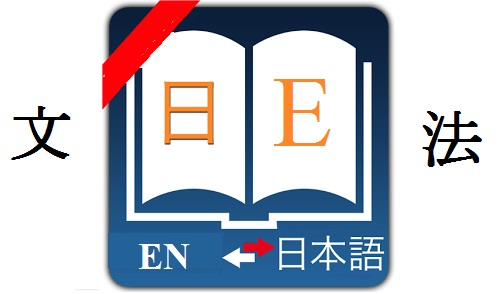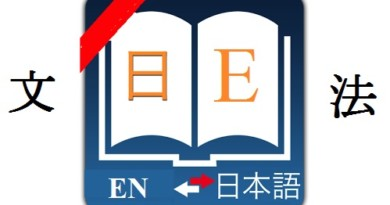Japanese わけだ grammar wakeda

Let’s learn Japanese わけだ grammar wakeda :
Contents
Japanese わけだ grammar wakeda
JLPT level : N3
Formation :
Nな/である+わけだ。
Aな+わけだ。
V+わけだ。
Aい+わけだ。
Japanese わけだ grammar wakeda
Meaning and how to use :
1. Natural and absolute result of an action, an event. Usually used with 「ので」、「だから」、「から」…
Examples :
天気予報によると、だんだん寒くなる一方だから、今日は昨日より寒いわけだ。
Tenki yohou ni yoru to, dandan samuku naru ippou da kara, kyou ha kinou yori samui wake da.
According to the weather forecast it’s more and more cold, so, of couse, today is colder than yesterday.
彼はクラスの中で一番賢明なので、いつも一番高い点を取るわけだ。
kare ha kurasu no naka de ichiban kenmei na node, itsumo ichiban takai ten o toru wake da.
He’s the most intelligent student in the class, naturally he always get the highest point.
佐藤選手は日本の最高な選手なので、国内の試合で金メダールを取るわけだ。
satou senshu ha nippon no saikou na senshu na node, kokunai no shiai de kimu medāru o toru wake da.
Player Satou is the greatest player of Japan, so he surely gets the gold medal in all the competition.
彼女は動物が嫌いですから、犬を飼ったことがないわけです。
kanojo ha doubutsu ga kirai desu kara, inu o katta koto ga nai wake desu.
She hate animal, so she doesn’t keep dog.
Japanese わけだ grammar wakeda
2. Describe things that can be replaced by another. Means “In other words”. Usually used with 「つまり」、「要するに」、「すなわち」、「言いかえれば」
For example
あの人は私の銘のお母さんですよ。つまり、あの人は私の妹であるわけだ。
ano hito ha watashi no mei no okaasan desu yo. Tsumari, ano hito ha watashi no imouto de aru wake da.
She is my niece’s mom.In other words, she’s my sister.
彼は20年以上科学を研究しましたよ。言いかえれば、専門家であるわけだよ。
kare ha 20 nen ijou kagaku o kenkyuu shi mashi ta yo. Iikaere ba, senmon ka de aru wake da yo.
He has been research on science. In fact he’s specialist.
彼女は埼玉から来ました。私も。つまり、彼女と私は同郷であるわけですよ。
kanojo ha saitama kara ki mashi ta. Watashi mo. Tsumari, kanojo to watashi ha doukyou de aru wake desu yo.
She comes from Saitama, so do I. In other words, we are fellows.
3. Describe reason, cause of an action.
For example
今から一所懸命勉強します。奨学金を取りたいわけだ。
ima kara isshokenmei benkyou shi masu. Shougaku kin o tori tai wake da.
I will study hard from this time, because I want to win scholarship
子供は泣いてしまったん。おもちゃが壊れたわけだ。
kodomo ha nai te shimatta n. Omocha ga koware ta wake da.
Children are cry because the toys are broken.
会社がつぶれた。社長は借金したが、返せないわけだ。
kaisha ga tsubure ta. Shachou ha shakkin shi ta ga, kaese nai wake da.
The company is bankrupt because the manager can not pay the loans
Japanese わけだ grammar wakeda
4.To claim the truth to persuade listeners. It’s used to emphasize the fact that what we are saying are all based on logical evidences. Sometimes, even if it’s not logic, it’s still used as an auxilliary at the end of the sentence.
For example
彼らは自転車で行くわけですから、遅刻する原因がわかる。
karera ha jitensha de iku wake desu kara, chikoku suru genin ga wakaru.
They all ride bikecycle, so I understand why they are late.
彼女は私のことが嫌いわけですから、私がいる所で彼女がない。
kanojo ha watashi no koto ga kirai wake desu kara, watashi ga iru tokoro de kanojo ga nai.
She hate me, so wherever I’m, she will not come.
私は大阪の天気に会うわけですから、この出張は行かせてください。
watashi ha oosaka no tenki ni au wake desu kara, kono shucchou ha ikase te kudasai.
Please let me go in this business trip because I’m cut out for Osaka’s weather.
Japanese わけだ grammar wakeda
5.In conversation, this structure describes a CONCLUSION that is drawn from what your partner said in the last turn.
Onlu used with: 「それじゃ…わけだ」、「それなら。。。わけだ」、「じゃ。。。わけだ」
A: 田中さんは外国でピアノをならいましたよ。
B:それじゃプロになったわけだよね。
A : tanaka san ha gaikoku de piano o narai mashi ta yo.
B : sore ja puro ni natta wake da yo ne.
A: Tanaka learnt piano in foreign country.
B:He must have become specialist.
A: 彼女は部長になったよ。
B:それなら彼女はそんなに自慢するわけですね。
A : [?] kanojo ha buchou ni natta yo.
B: sorenara kanojo ha sonnani jiman suru wake desu ne.
A: She has just become the head of her department.
B: That’s the reason why she’s so arrogant.
A:最近私は病気がかかったよ。
B:そうですか。それじゃ君が休んだばかりなわけですね。
A: saikin watashi ha byouki ga kakatta yo.
B: sou desu ka. Sore ja kimi ga yasun da bakari na wake desu ne.
A: I’m sick.
B: That’s why you are absent from class.
Japanese わけだ grammar wakeda
6. Thing that we didnt understand before is now clear thank to the previous saying. Means” Because that…so…”
Only used with:
「だから。。。わけだ」
「なるほど。。。わけだ」
「どうりで。。。わけだ」
「それで。。。わけだ」
For example
1. 彼女はダイエットをしているらしいですよ。
だから最近やせたと見えますね。
kanojo ha daietto o shi te iru rashii desu yo.
dakara saikin yase ta to mie masu ne.
She is said to have lost weight.
No wonder she’s so thin.
2. あの人は日本人ですよ。でも、外見はベトナム人のようですね。
ano hito ha nipponjin desu yo. Demo, gaiken ha betonamu jin no you desu ne.
He’s Japanese, but he have appearance looking like a Vietnamese.
それで日本語が上手なわけですね。
sorede nihongo ga jouzu na wake desu ne.
No wonder he’s so good at Japanese
3. 隣の人は失業しましたよ。なるほど最近家にいたばかりなわけですね。
tonari no hito ha shitsugyou shi mashi ta yo. Naruhodo saikin ka ni i ta bakari na wake desu ne.
Our neighbor is unemployment, no wonder he just stays at home.
Note:
With the sixth use we don’t have to use「ね 」after「わけだ」 , but in the fomal cases, 「わけです」must go together with「ね」、「な」
Related structures :
わけだ:wakeda
わけがない:wakeganai
というわけだ:toiuwakeda
わけではない:wakedehanai, wake dehanai
わけだから:wakedakara
というわけではない:toiuwakedehaani, toiu wakedehanai
わけても:waketemo
わけにはいかない:wakeniha ikanai, wakenihaikanai
ないわけにはいかない:naiwakeniwaikanai, naiwakeniha ikanai
Ref : tuhoconline
above is Japanese わけだ grammar wakeda. if you don’t understand the signs we used in fomation, you can find their meaning here : signs used in Japanese grammar structures.
You can search the structure you want by using the search tool on our website (using key : grammar + ‘structure name’ or you can find more Japanese grammar structures in the following category : Japanese grammar dictionary
